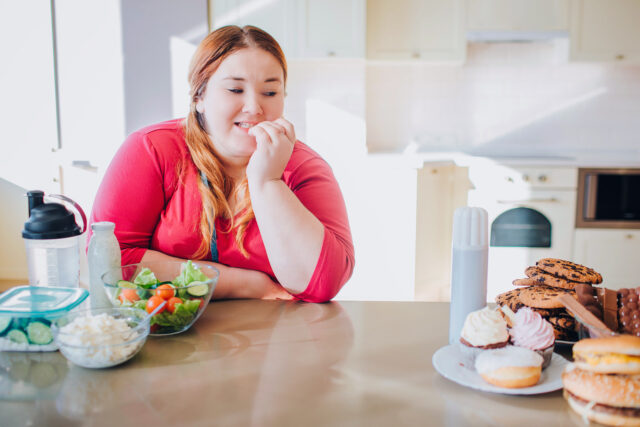How to Stop Food Cravings
Recognizing cravings and understanding what triggers them can make it easier to manage and resist them. Techniques such as increasing protein intake, planning meals ahead, and practicing mindful eating can also help curb cravings.
How to Stop Food Cravings involves adopting these strategies consistently to regain control over eating habits.
Food cravings often pose a major challenge for those trying to lose weight.
They involve intense, sometimes overwhelming urges for specific foods, going beyond typical feelings of hunger.
While cravings can vary widely from person to person, they often center around highly processed, sugary junk foods.
In fact, cravings are one of the primary obstacles that make both weight loss and weight maintenance difficult.
What Are Food Cravings?
Food cravings are intense urges to eat specific foods, usually high in sugar, salt, or fat.
They are different from regular hunger cravings are often emotional or triggered by habits, stress, or even nutrient deficiencies.
Main Causes of Cravings:
- Hormonal imbalances (like ghrelin and leptin)
- Stress (high cortisol levels)
- Blood sugar drops (after eating sugary foods)
- Lack of sleep (disrupts appetite hormones)
- Emotional triggers (sadness, boredom, loneliness)
- Habit (e.g., snacking while watching TV)
Natural and Easy Ways to Stop Food Cravings

1. Stay Properly Hydrated
- Sometimes your body mistakes thirst for hunger.
- Tip: Drink water first when a craving hits; wait 10 minutes.
- Bonus: Herbal teas like peppermint or green tea can also help.
2. Eat High-Protein Meals
- Protein keeps you full longer and reduces cravings significantly.
- Why? It lowers levels of the hunger hormone ghrelin.
- Examples: Chicken, fish, tofu, lentils, Greek yogurt.
3. Balance Your Meals (Fiber + Fats + Protein)
- Fiber slows digestion, keeping blood sugar stable.
- Healthy fats (like avocado, nuts, olive oil) keep you satisfied.
- Balanced meal = fewer sugar crashes = fewer cravings.
4. Sleep at Least 7–9 Hours Per Night
Lack of sleep boosts ghrelin (makes you hungrier) and lowers leptin (makes you feel less full).
Good sleep hygiene tips:
- Avoid caffeine late in the day.
- Turn off screens 1 hour before bedtime.
- Stick to a regular schedule.
5. Manage Your Stress
High stress causes emotional eating.
Natural stress management methods:
- Meditation (even 5 minutes helps)
- Deep breathing exercises
- Journaling
- Nature walks
- Listening to calming music
6. Identify Emotional Eating
Before eating, ask yourself:
“Am I really hungry, or am I feeling something (bored, anxious, sad)?”
If it’s emotional, choose a healthy action (like stretching, talking to someone, or a hobby).
7. Avoid Extreme Hunger
- Skipping meals or extreme diets cause stronger cravings.
- Solution: Eat small, balanced meals every 3–4 hours.
- Always have healthy snacks ready (almonds, carrots, boiled eggs).
8. Keep a Food and Mood Journal
- Write down when cravings hit, what you craved, and how you felt.
- This helps identify patterns and emotional triggers.
- Over time, you can create better strategies.
9. Natural Appetite Suppressants
- Peppermint tea: Suppresses appetite naturally.
- Apple cider vinegar: Diluted with water, stabilizes blood sugar.
- High-fiber foods: (chia seeds, oats, beans) keep you full.
10. Distract Yourself
Cravings are temporary — they usually last only about 10–20 minutes.
Distract yourself with a short activity:
- Call a friend
- Go outside
- Read something interesting
- Practice a hobby
Extra Powerful Tip: Visualization Technique
When a craving strikes, close your eyes and visualize yourself achieving your health goal (being energetic, fit, confident).
This mentally shifts you from wanting short-term pleasure to focusing on long term satisfaction.
Cravings are a natural part of life but they don’t have to control you.
By using these natural, easy strategies daily, you can train your brain and body to crave healthier options and stay in balance.
Read more about Healing Natural Oils for humanity




